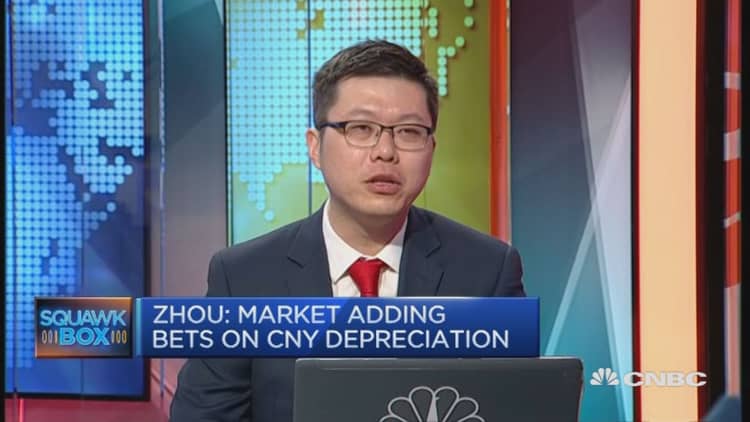
Comparing the yuan's recent moves against the dollar misses the currency's underlying strength of the against a more appropriately watched basket, People's Bank of China (PBOC) Deputy Governor Yi Gang said in remarks released on Chinese state-run media at the weekend.
In a question-and-answer format interview with Xinhua news agency that was posted on the central bank's website, Yi said the yuan remained a strong and stable currency in the global monetary system, while noting concerns about a slide against the dollar after Donald Trump's victory in the Nov. 8 presidential election.
The yuan plunged to eight-and-a-half year lows versus the dollar last week. On Monday, the PBOC set the yuan's central parity rate against the dollar at 6.9042, stronger than the 6.9168 level set on Friday.
"Referencing the yuan against a basket of currencies can better reflect the overall competitiveness of a country's goods and services," Yi said.
Given that economic structures, cycles and interest rate policies differed in various countries, fixating on a single currency was not suitable and may cause the yen to be "over-managed," he added.
Yi said the yuan's movements were due to domestic factors in the U.S., as they reflected the rise of the greenback on the back of improvements in the U.S. economy and inflation, alongside expectations of a quickening in the pace of Federal Reserve interest rate hikes.
The U.K's June referendum that supported leaving the European Union and the Egyptian central bank's move to freely float its currency on Nov. 3 also contributed to a faster depreciation of the yuan against the dollar, he added.
"These factors are somewhat unexpected for various countries. A rapid rise in capital inflows back to the U.S., record highs reached in the three major indices, and a general depreciation in global currencies against the dollar, some of which fell relatively much," he said.
The yuan, in fact, had weakened less than other currencies in both the developed and developing markets, the central banker added.
During his campaign, U.S. President-elect Trump accused China of unfair trade practices, including manipulating the yuan lower to benefit the country's exports.

